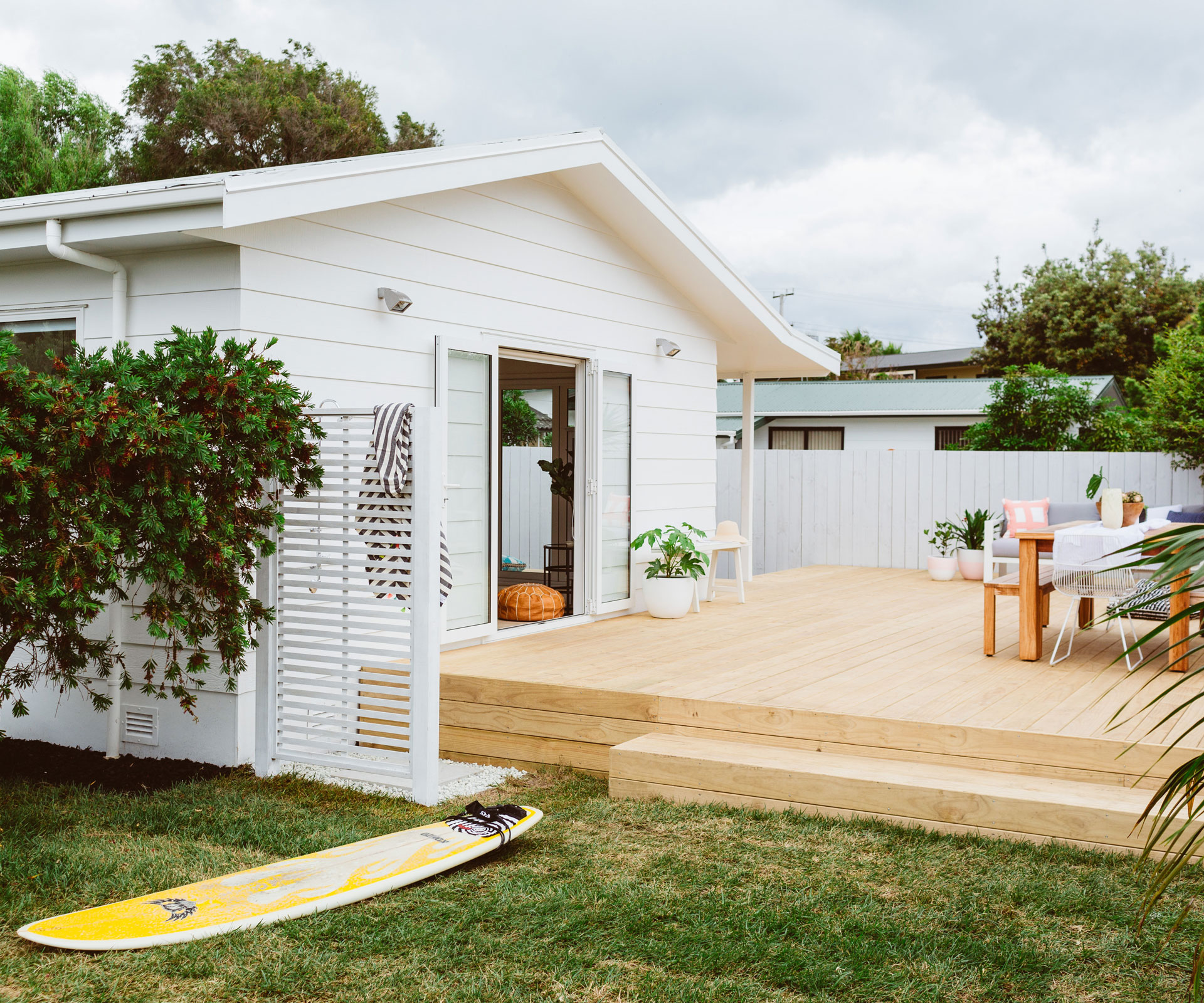Want to try your hand at house flipping? Abbie Herniman of The Home Maker shares what she learned from her first reno-for-resale experience
1. Buy smart
As they say, you make your money when you buy. It doesn’t matter how amazing your renovation is, if you have overpaid for the property, it is already eating into any potential profit. Leave your emotions at the door and use your head, not your heart, when purchasing.
2. Research
Research the suburb’s sales history so you know the house is at the right price and learn what you could potentially sell the property for when the renovation is complete. Once you are interested in a property, do all the due diligence required – have your lawyer go over the LIM, get a building inspection and talk to the neighbours about the area.
3. Know the tax rules
Employ a trusted lawyer and accountant and find out what your legal and tax obligations are. The current law states if you buy a property with the intention of reselling it, or buy a home as part of your property or building business, you will have to pay tax on any profit from the sale. If you buy and sell a property within two years (this is currently under review), you’ll pay tax on any profit (with some exclusions, eg your main home is excluded). You may also have to pay tax on profit if you have a history of buying and selling properties, or if you’re associated with the property industry. For details, see ird.govt.nz/property
4. Plan, plan, plan
You can download budget planners which detail all the costs involved in buying, renovating and selling a house. These cover purchasing costs (building inspection, lawyer, accountant), holding costs (mortgage payments, rates, insurance), renovation costs (council consents, builders, tradies, fixtures and fittings) and selling costs (agent’s fees, lawyer and accountant).
5. Count on quotes
Get several quotes for work required and clarify the scope of work you are paying for, eg will you project manage or will the builder? Will you source each tradie or will your builder give one fixed price for the entire job? This process is time-consuming but important.
6. Make it quick
Aim to complete the renovation and get the house back on the market as quickly as possible, so you are selling in the same market you bought in. This will protect you from any potential market downturn and ensure holding costs like mortgage repayments, rates and insurance are as low as possible. Although this renovation took longer than anticipated due to an unprecedented building boom in the area, house values were increasing at such a rapid rate that the extra costs incurred were outweighed by the increase in the property’s value.
7. Expect the unexpected
Our budget ran over by about 10 percent, which is common when renovating. Other than a new joist needed in the bathroom floor, everything else was in mint condition. However, the renovation wasn’t without its lows. There was one awful moment a few days before the Readylawn was to be laid, when we found out that a large, deep trench had to be dug through the newly laid driveway and across the entire front yard. Incredibly, it was fixed within 24 hours and the drainage boys then levelled out the ground, meaning one less job for us before the lawn was laid.
The other bad experience involved a tradie who was booked to do the driveway but took my money and skipped town. That’s an extra tip – never pay before work is complete.
1/9
Abbie decided to take the plunge and create The Home Maker, a boutique renovation company where she would buy, renovate, then sell homes.
2/9
‘The Bach’ was Abbie’s first project – a small, Fibrolite, three-bedroom, one-bathroom home very typical of the Papamoa area.
3/9
4/9
Sitting at a petite 90 square metres, it was important to maximise storage and create a feeling of space.
5/9
Abbie wanted a cohesive feeling throughout the house saying, “I kept it neutral with white, grey and light timber as a backdrop to a palette of muted aquas, blues and blush tones.”
6/9
7/9
An oak vanity perfectly fits into a space reclaimed from the adjacent laundry and brings warmth to the white bathroom, which boasts floor-to-ceiling subway tiles.
8/9
9/9
Abbie added a huge deck that equates to two-thirds of the home’s area. She installed an outdoor shower for rinsing off sand from the beach, which is just a hop, skip and a jump away.
Words by: Abbie Herniman. Photography by: Rachel Dobbs.
EXPERT PROJECTS

Create the home of your dreams with Shop Your Home and Garden
SHOP NOW
























